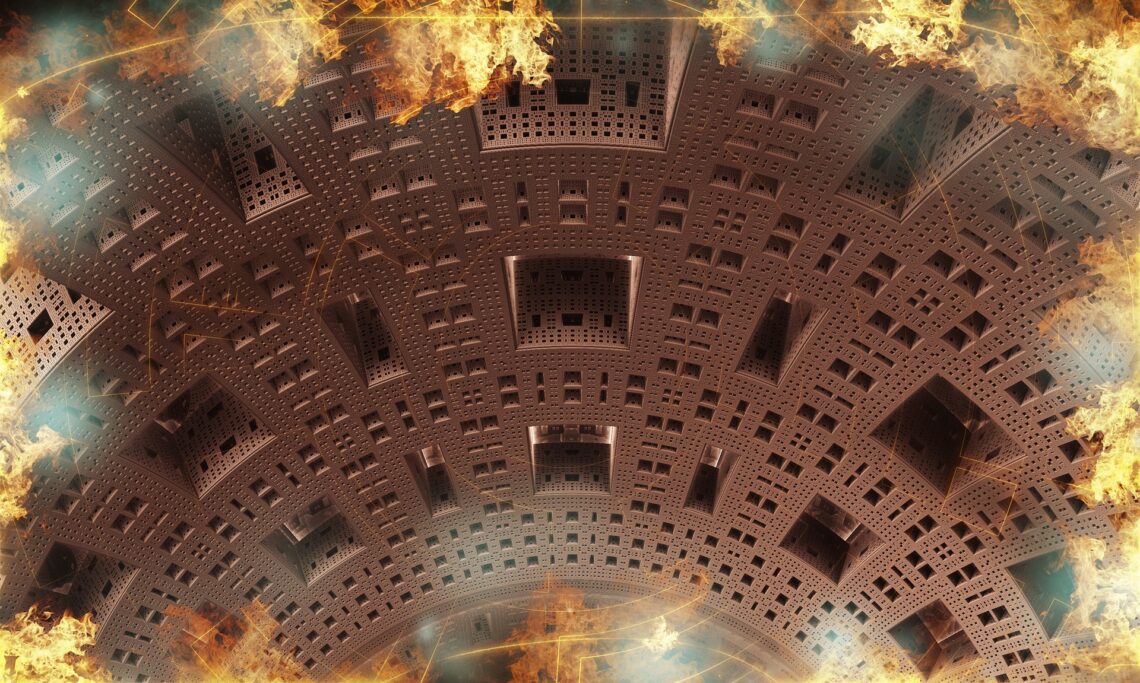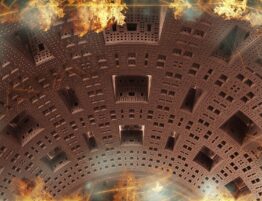
The Rise and Fall of Babylon (Part 3)
Babylon Future
Some Bible interpreters think that “Babylon” in Revelation 17–18 was code for some other entity (from Rome to New York City). However, I agree with those who say that just like “Israel” always refers to Israel in the scriptures, so also “Babylon” always refers to literal Babylon. It does not make a whole lot of sense that Babylon would refer to literal Babylon everywhere in scripture except in the book of Revelation.
Henry Morris says,
It must be stressed again that Revelation means “unveiling,” not “veiling.” In the absence of any statement in the context to the contrary, therefore, we must assume that the term Babylon applies to the real city of Babylon, although it also may extend far beyond that to the whole system centered at Babylon as well.1
God does not tell us how these prophecies about Babylon will be fulfilled. We do not know who will rebuild it or how it will be rebuilt. But He does clearly announce that the city where fallen humanity first raised its fist in rebellion against Him will return at the end of the age. Three details from the book of Revelation, however, do provide us with some hints about how Babylon will rise to power one last time.
In Revelation 17–18, John announces the destruction of “Babylon the Great.”It is quite reasonable to identify the city with the prophecies of Babylon’s destruction found in Isaiah, Jeremiah, and Zechariah. John pictured Babylon as a woman who personifies evil and describes her as seated on many waters and holding a cup, both descriptions coming from the prophecy of Jeremiah. The book of Revelation provides a few new details.
Babylon the Wealthy
In Revelation 17:4 and 18:16, John described Babylon as a city dressed in “purple and scarlet, adorned with gold, jewels, and pearls.” In 18:12–13, he listed these items, along with others, as “cargo.” Babylon will be a destination for the “merchants of the earth” (18:11) looking to sell all their exotic and expensive wares. “Merchants” too will “weep and mourn” the city’s downfall since they will no longer be able to carry on commerce with the city.
We need to keep in mind that this is a time when basic necessities will be so scarce it will take an entire day’s wages for an average worker to be able to buy a quart of wheat or three quarts of barley (Revelation 6:6). Babylon will have money to spend on luxury items.
Babylon Will Exert Economic Control over the World
John resolved a mystery from the Old Testament. Isaiah, Jeremiah, and Zechariah pictured Babylon as the end-time evil power that God vowed to judge. But in Daniel, we learn that the last of the world powers is Rome (Daniel 2; 7; 9). John makes clear in Revelation 17 that there are two major powers during the end-times: one military and the other economic.
The revived Roman Empire is the dominant military power. When John first described this empire and its ruler, pictured in Revelation 13 as a beast, he said the world will cry out, “Who is like the beast? Who can wage war against it?” (13:4). John was providing additional details about a beast described originally by Daniel more than six centuries earlier. Daniel said this final empire “will devour the whole earth, trample it down, and crush it” (Daniel 7:23).
John pictured Babylon as a woman who personifies wickedness, borrowing from the prophecy in Zechariah. But John then adds that Babylon is riding on the beast. This woman named Babylon “is seated on many waters” (Revelation 17:1), “on a scarlet beast” (17:3), and on the “seven heads” that are part of the beast (17:9). The woman’s position refers to her control. The angel said to John that the waters where the “prostitute” sits refer to “peoples, multitudes, nations and languages” (17:15), meaning, she exerts control over everyone. John then says that she “has royal power over the kings of the earth”(17:18); this includes the Antichrist, but how?
Her “royal power” is not military power; it is economic power. “Babylon the Great” exerts some sort of financial or commercial control over the entire world. Although this passage does not tell us what the source of her wealth is, with Russia and Iran out of the equation, oil revenues is a reasonable possibility.
Babylon’s Destruction
Babylon will exert economic control over the Antichrist for a season. The Antichrist needs what Babylon controls and will be forced to pay quite a bit for it. But this will not go on indefinitely. In his ever-growing quest for world domination, he will plot Babylon’s destruction. John described it this way:
The ten horns you saw, and the beast, will hate the prostitute. They will make her desolate and naked, devour her flesh, and burn her up with fire. (Revelation 17:16)
The Antichrist will use his military power to destroy her.
But why would the Antichrist destroy Babylon, knowing that Babylon’s destruction will result in greater economic problems for the world? Revelation 18 describes other world rulers, merchants, and sea captains weeping and mourning over the fall of the city that had been a source of revenue in otherwise hard times (18:9–19). John provided the answer in Revelation 17:17:
For God has put it into their hearts to carry out his plan by having one purpose and to give their kingdom to the beast until the words of God are fulfilled.
God is the one who announced Babylon would be destroyed, and He will make sure that prophecy is fulfilled.
Babylon is destined to rise—and fall—again. By arranging the few pieces of the prophetic puzzle that are available, we can make a tentative suggestion as to how it will come about.
New Babylon Rising
Babylon will rise to power sometime after the destruction of the alliance of nations made up of Russia, Iran, Turkey, and other countries from North Africa. Babylon will become an economic powerhouse that will exert economic control over the world. Perhaps this will involve an attempt to unite the remaining Arab countries of the Middle East and refashion an oil cartel that will hold the world hostage. That possible scenario certainly makes sense.
But one thing is certain. Babylon will rise again to play a role in end-time events until it is finally destroyed, as we learn will happen in Revelation 18:21:
Then a mighty angel picked up a stone like a large millstone and threw it into the sea, saying,
In this way, Babylon the great city will be thrown down violently and never be found again.
Despite all the uncertainty of our times, we rest assured that almighty God is in control and that His ultimate plans and purposes will not be thwarted. There is still one more kingdom to be ultimately established—an eternal kingdom.
1 Henry Morris, The Revelation Record (Wheaton, IL: Tyndale House, 1983), 323.
Unless otherwise noted, all Scripture quotations are taken from The Christian Standard Bible. Copyright © 2017 by Holman Bible Publishers. Used by permission. Christian Standard Bible®, and CSB® are federally registered trademarks of Holman Bible Publishers, all rights reserved.
Dr. Miguel J. Gonzalez is the Founder and President of Reasons for Faith International Ministries. He served as a pastor for ten years in Charlotte, NC and has taught in churches and conferences throughout the United States. He currently hosts the Time in the Word and Truth To Live By podcasts and writes at KnowingChristianity.blogspot.com.
Copyright © 2006–2022 by Miguel J. Gonzalez Th.D. and published by Reasons for Faith International Ministries, Inc. by permission. No part may be altered or edited in any way. Permission is granted to use in digital or printed form so long as it is circulated without charge, and in its entirety. This document may not be repackaged in any form for sale or resale. All reproductions must contain the copyright notice (i.e., Copyright © 2006-2021 Miguel J. Gonzalez Th.D.) and this Copyright/Limitations notice.



